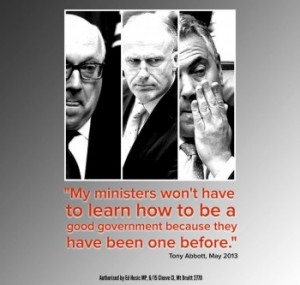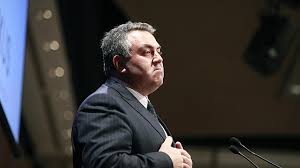By the National Reporting Team's Alison Branley and Norman Hermant 1 September 2014
Photo: BasicsCard users are finding ways around the system's rules. (ABC News, file photo)
Welfare recipients are spending money quarantined for essentials on banned items and bartering groceries for cash and alcohol, an ABC investigation has found.
Under place-based income management, selected welfare recipients in Playford, South Australia, Shepparton,Victoria, Logan and Rockhampton in Queensland, and Bankstown, New South Wales, have 50 to 70 per cent of their benefits quarantined for essentials.
The scheme is typically administered using the BasicsCard, a card that can only be used at approved retailers.
Cigarettes, alcohol, pornography or gambling are banned purchases.
However, the ABC has learned that people who have been forced onto the BasicsCard are frequently finding ways around regulations, adding weight to suggestions that the scheme is an expensive failure.
Income management was initially introduced to the Northern Territory during the intervention, but it has expanded in recent years, including to the eastern states in 2012 for the place-based trial.
BasicCard users in place-based trial
- Bankstown (167)
- Shepparton (348)
- Playford (588)
- Rockhampton (467)
- Logan (949)
The Government initially projected 5,000 people would be included in the eastern states scheme.
Two years on, 2,519 people are on the program. The Government has said the 5,000 figure was never a target or a cap.
In Bankstown, where the Public Service Union have been running work bans, there are only 167 people participating in the scheme.
About one-in-five participants volunteered for the program; the rest were either referred by child protection workers or deemed vulnerable by Centrelink.
Inexperienced cashiers selling cigarettes to BasicsCard holders
BasicsCard users in Shepparton showed the ABC how easily they could get around the rules, as banned purchases are at the discretion of cashiers.
Retail cashiers are often young and inexperienced, and one Shepparton local, Teegan Gartrell, had receipts showing she had purchased cigarettes with her BasicsCard.
"You'd be amazed at how many people know where to go to buy cigarettes on the BasicsCard," she said.
Reports into the scheme have conceded that the Government can not tell people what to buy with their BasicsCard.
Photo: Teegan Gartrell showed the ABC receipts for cigarettes purchased with her BasicsCard. (ABC News)
"[Department of Human Services (DSS)] data could show that money was spent in an approved store, but could not show the actual purchases such as fresh food, school clothing or educational items," one noted.
The scheme has also been criticised because it prevents card holders from shopping at retailers of their choice, including discount stores such as Aldi.
A DSS spokeswoman said Aldi did not offer BasicsCard because they could not meet set criteria.
"Specifically, they are not able to prohibit the sale of alcohol to BasicsCard holders," she said.
The ABC asked Woolworths if their computer systems red-flag banned goods such as cigarettes or alcohol.
A spokeswoman said it came down to staff discretion.
"Staff in these stores receive specific training relating to the use of BasicCards,'' she said.
Questions also remain about uses of the BasicsCard at places like newsagents, where gambling, pornography and cigarettes are all available.
Scheme criticised as expensive and misdirected
There were few participants in the scheme until early 2014, when the Government forced people on certain youth welfare payments to have their income managed.
This was despite initial suggestions that income management was aimed to force families on welfare to provide essentials for children.
A Department of Social Services (DSS) spokeswoman said the scheme was also for those deemed vulnerable and young people who have been unemployed for a long time.
"While children and families are certainly a priority, income management aims to provide assistance more broadly," the spokeswoman said.
[The BasicsCard] is way too expensive and in some places it costs as much to administer as the income it hands out.
Andrew Forrest
For each participant, the scheme costs between $4,500 and $7,700 to administer.
The existing 23,000 income management recipients in and outside the Northern Territory make more than 46,000 calls a week to Centrelink to change their arrangements.
In a statement, a DSS spokeswoman said income management helped people better care for their families and themselves.
"Many families have said that income management has taken the stress out of managing household budgets, helped them keep utilities connected and assisted in clearing debts," she said.
Mining magnate Andrew Forrest looked at income management as part of his welfare review for the Government.
He said, while income management had merits in some cases, the BasicsCard has not worked.
"[Income management] is a very specific solution for very specific communities," he said.
"[The BasicsCard] is way too expensive and in some places it costs as much to administer as the income it hands out."
BasicsCard users swapping groceries for grog
Addiction experts in Playford, South Australia, said they know of income management participants bartering BasicsCards goods for alcohol and cash.
Andris Banders from the South Australian Network of Drug and Alcohol Services said addicts will always find a way.
"This doesn't deal with addiction in any way. If I've got $200 in my pocket and you take $100 out, that doesn't mean that my addiction is going to halve at all," Mr Banders said.
"I'm still going to need that grog, or that drug, or whatever it is – I'm still going to have to get it in some way."
In Shepparton, a man known as Malcolm told the ABC he would simply steal alcohol if he was placed on the income management.
"You gotta have what you gotta have," he said.
Mr Forrest, who has proposed his own high tech Healthy Welfare Card that works like a debit card, said the BasicsCard has not solved the problem of addiction.
"This wasn't going to resolve grief and tragedy inflicted across entire vulnerable communities across Australia where they fall prey to drug dealers and alcohol," he said.
"You hear stories from mothers weeping that their children will commit suicide if they don't get money to get their ganja (marijuana) or their cases of cheap wine or beer.
"You don't need to restrict drugs and alcohol to people who have no track record of having any issues with drugs and alcohol."
Cashier told card user steak was 'too expensive'
Anecdotal reports also suggest BasicsCard users face stigma and discrimination.
Pas Forgione, who runs a campaign against income management in Playford, said that, in one case, a cashier asked a young person why they were buying steak, "because it was too expensive".
Another young man trying to buy a video game in Target was told to put it back.
Mr Forgione said there were also special highly branded BasicsCard kiosks for people to view their balances, which humiliated users.
"The vast majority of Centrelink clients manage their money responsibly," Mr Forgione said.
"In Playford, what we've seen is that the people being put on income management are perfectly adept at managing their finances."
A DSS spokeswoman said a number of reports and evaluations over the next 12 months would decide the future of the scheme.
 Photo: The Government's confused and overblown rhetoric on the budget didn't help the sales pitch. (AAP: Lukas Coch)
Photo: The Government's confused and overblown rhetoric on the budget didn't help the sales pitch. (AAP: Lukas Coch) 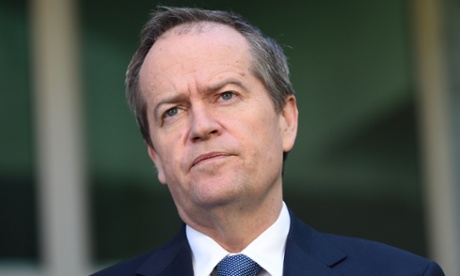 The poll was conducted a day after Bill Shorten revealed he was the Labor figure questioned by police over a sexual assault allegation. Photograph: Lukas Coch/AAP
The poll was conducted a day after Bill Shorten revealed he was the Labor figure questioned by police over a sexual assault allegation. Photograph: Lukas Coch/AAP Photo: Tony Abbott needs to neutralise Clive Palmer and PUP, who are stealing the Coalition's base. (Getty/AAP)
Photo: Tony Abbott needs to neutralise Clive Palmer and PUP, who are stealing the Coalition's base. (Getty/AAP)  Photo: The Assyrian Resource Centre says the 4,000 special humanitarian visas are not enough to cope with the number of refugees fleeing Iraq. (ABC News)
Photo: The Assyrian Resource Centre says the 4,000 special humanitarian visas are not enough to cope with the number of refugees fleeing Iraq. (ABC News)  Photo: Ilvin Warda says her sister's family are now virtual prisoners in their home. (ABC News)
Photo: Ilvin Warda says her sister's family are now virtual prisoners in their home. (ABC News)  Photo: Finance Minister Mathias Cormann says there is no rush to address the "budget emergency". (AAP: Alan Porritt, file)
Photo: Finance Minister Mathias Cormann says there is no rush to address the "budget emergency". (AAP: Alan Porritt, file) 
 Photo: What's the reality behind Tony Abbott's Team Australia? (AAP: Dan Peled)
Photo: What's the reality behind Tony Abbott's Team Australia? (AAP: Dan Peled) 
 Photo: Scott Morrison told the hearing that the former Labor government should be questioned about its policies. (AAP: Lukas Coch)
Photo: Scott Morrison told the hearing that the former Labor government should be questioned about its policies. (AAP: Lukas Coch) 
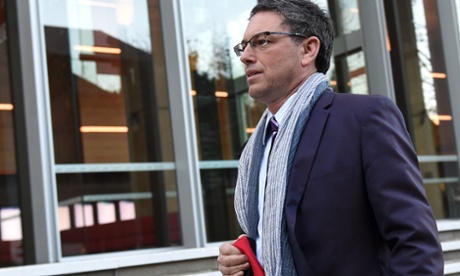 George Newhouse said the UN and other human rights organisations were ‘following the case very closely’. Photograph: Paul Miller/AAP
George Newhouse said the UN and other human rights organisations were ‘following the case very closely’. Photograph: Paul Miller/AAP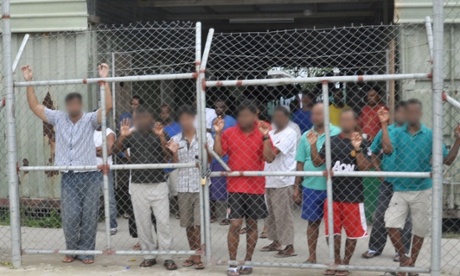 Asylum seekers housed in Delta compound on Manus Island detention centre. Photograph: Eoin Blackwell/AAP
Asylum seekers housed in Delta compound on Manus Island detention centre. Photograph: Eoin Blackwell/AAP